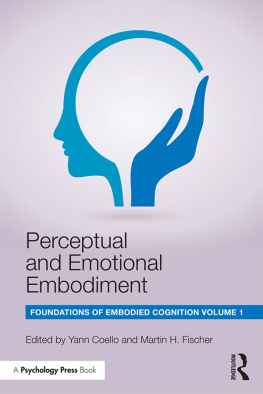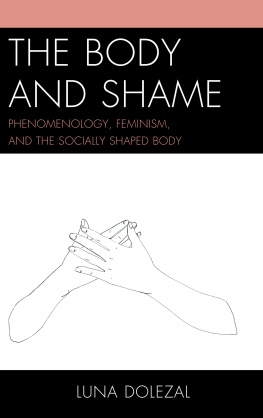Acknowledgments
The personal and intellectual debts accrued during the writing of a book are extensive and a humbling reminder of the generosity and kindness of many people and institutions who have enabled, supported, nurtured, and encouraged my research for more than two decades. I am, first and foremost, deeply grateful to the women of Punatacomadres, friends, and caretakers who welcomed me into their homes, shared food and drink with me, and who patiently shared their sorrows, fears, hopes, and aspirations with me. Although I cannot name each of them and have used pseudonyms throughout this book, their reflections helped me view the body, health, and emotions in new ways. Without their deep engagement and trust, this book would not have been possible. Any omissions or unintended misrepresentations within these pages are, of course, my own fault.
Several grants, fellowships, and awards have supported my fieldwork, research, and writing. Preliminary field trips were funded by an ethnographic training grant supported by the National Science Foundation and the Center for Latin American and Caribbean Studies at the University of Illinois, Urbana-Champaign. The extended fieldwork was generously funded by the Joint Committee on Latin American Studies of the Social Science Research Council and by a U.S. Student Fulbright Grant. Generous funding from the University of Illinois, Urbana-Champaign and Grinnell College made it possible for me to write and undertake several return trips to Bolivia as well as begin fieldwork in Spain with Bolivian migrants. I am very grateful to all these institutions for their support.
This project has been mentored and intellectually shaped by many people who merit special recognition. I am particularly indebted to Norman Whitten, whose continued support and encouragement through the many ups and downs of the writing process were invaluable. It is a privilege to count on the support of a mentor well beyond ones graduate school years. I extend special thanks to Bill Kelleher, whose kindness, insights, and gentle guidance is terribly missed by many of his students. I am also deeply grateful for the insights and feedback from Nancy Abelman, Clark Cunningham, Alma Gottlieb, Alejandro Lugo, Janet Keller, Andy Orta, and Clodoaldo Soto. I am very proud to call each of them an important part of my intellectual genealogy. My work also greatly benefited from countless discussions with colleagues and the support of friends in Bolivia, the United States, and across the globe: Lisa Avalos, Sandra Hamid, Gina Hunter, and Jill Leonard deserve heartfelt thanks along with Debbie Boehm, Charles Briggs, Clara Mantini Briggs, Pamela Calla, Victor Hugo Callisaya, John Fennell, Richard Freeman, Brigittine French, Michael Goldman, Nelly Gonzalez, John Hammond, David Hopping, Ronnie Kann, Tom Kruse, Heather Lobban-Viravong, Aurolyn Luykx, Ladona Martin-Frost, Enrique Mayer, Johanna Meehan, Claire Moisan, Susan Paulson, Sarah Phillips, Judith Pintar, Nancy Postero, Maria Ester Pozo, Liz Queathem, Denise Roth, Gemma Sala, Ralph Savarese, Miriam Shakow, Mark Schneider, Rachel Schurman, Simone Sidwell, Suzanne Simon, Maura Strassberg, Arlene Torres, Gaku Tsuda, Krista Van Vleet, Katie Wiegele, Jill Wightman, and Jonathan Zilberg. I am also grateful to my colleagues in the Department of Anthropology at Grinnell College for their support and collegiality. Special thanks to Sondi Burnell, Caroline Bailey, Heather Riggs, and Gabielle Robinson-Bajuscik for their research assistance, transcriptions, and runs to the library, and to Juana Rojas and Silvia Jaldin for help in the field. The staff at the University of Illinois press patiently helped bring this project to its completion, and a special thanks is extended to Danny Nasset, Julie Gay, and John Bealle for indexing.
I wish to thank my mother and father, Marina and Oscar, who have been endless sources of encouragement and support. My father passed away before this book was completed, but his love of learning, his intellectual curiosity, and his empathy for the human condition have always been and will continue to be sources of inspiration. My mother has modeled for me what it means to be mindful of what it might be like to walk in the shoes of others and taught me to be true to my dreams. My parents-in-law Maria Antonia Tur and Antonio Escandell welcomed me into their hearts and home since the first time I visited them in Spain and have always been a source of wisdom and laughter for me. I also wish to thank my brothers, Carlos, Oscar, and Tony, who in their own quiet Tapias way have always cheered me on. Thanks also to my sister-in-law, Eva, my niece Christine and my nephews Paul and Xavi, as well as all my extended family in New York and in Bolivia, most particularly my tia Norah and Uncle Tony, my tia Teresa and tio Mario, tio Rafy and tia Quely, tio Jaime, tia Teresa, tio Enrique as well as my numerous primos hermanos. Although I have now spent most of my adult life in the Midwest, what makes it home are wonderful friends and a community of people who must also be thanked: Cheri and Gary Cederlund, Michelle Devlin, Valentina and Artun Doumanian, Tony Gabriele and Elana Joram, Mark and Mary Grey, Deedee Heisted and Jeff Funderburk, Farah and Ali Kashef, Konrad Sadkowski and Alicja Boruta-Sadkowski, Francesca Soans and Gereon Kopf, Isabela Varela and Greg Bruess as well as the rest of the Cedar Falls/Waterloo crew.
Finally, my deepest thanks go to my husband, partner in life, intellectual sounding board, and friend, Xavier Escandell, and our two sparkling and magical daughters, Marina and Gemma, who ground us amid the chaos of our household. Xavi has been the tireless and best possible supporter, advocate, and partner for all things work and life related. He has read countless drafts of my work, and his keen insights have helped push me to further refine the arguments made in this book. Those who know him know he is, indeed, larger than lifeand, for all those who have asked: Yes, I have laughed nearly every day since 1999 when we first met. This book is lovingly dedicated to him.
Authors Note
The introduction and





 This book is printed on acid-free paper.
This book is printed on acid-free paper.